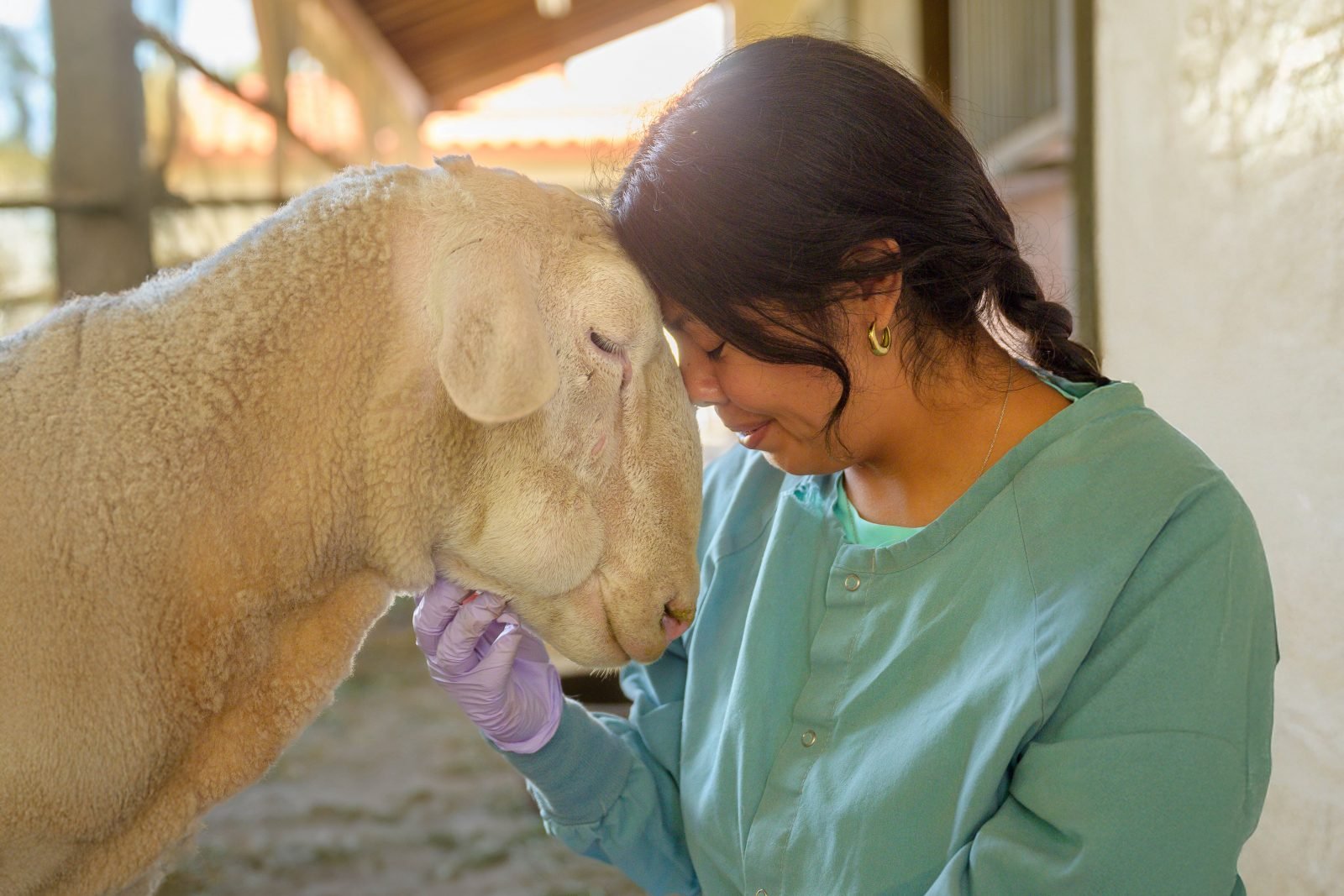Sheep, as a species, are precocial animals. Unlike humans—who are fully dependent on others at birth for survival—most newborn lambs can stand on their feet and walk on their own shortly after they are born.
But Otto was different. As a “bummer lamb,” he couldn’t nurse from his mom; in fact, he couldn’t even open his mouth on his own. Otto also had trouble walking and lacked basic directional awareness. If Otto walked himself into a corner, for example, he would get stuck—not realizing that he could simply turn around.
In many cases, sheep who can’t follow the flock get left behind. Commercial operations, like the one where Otto was born, will rarely put in the time to help those with special needs. The Targhee/Finn cross was being raised for meat and would have gone to slaughter at just six to eight months old. Few farmers deem it worthwhile to invest in animals they plan to slaughter—from a financial perspective, it is more efficient to “replace” lambs like Otto than to spend money on sheep that will not garner profit. Many are culled or simply left to die.













